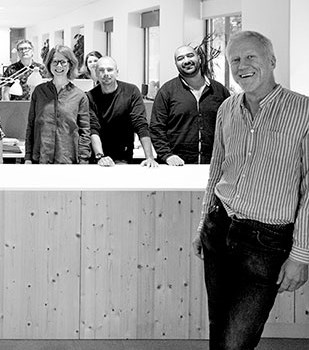STOCKHOLM, SWEDEN As much needs to be built in the near future as has been built in the whole of human history, primarily in the world’s cities. That equates to an estimated 14,000 homes per day. Every day. For the next 40 years. This is according to the World Trend Report 2030 from the US National Security Council.
Urbanisation offers fantastic opportunities and improved quality of life for a huge number of people, but also demands innovation in order not to upset an already precarious climate situation.
As of today, we know two things for certain: 1. This urbanisation will not be led by Sweden. Stockholm, which is Europe’s fastest growing city, only comes in at 300 on the City Mayors Foundation’s list of the fastest growing cities in the world. 2. Cities are currently being built in concrete, and the concrete industry accounts for 5 percent of the world’s carbon emissions.
So far, our impact on the Earth’s climate has been largely unintentional and negative. If we start building cities in wood, we can ensure an intentionally positive impact.
Let’s back up a little. 300 million years ago, plants developed into trees as they competed to get the most sunlight. It took another 50 million years for fungi to adapt their degradation process to the new material. During that time, wood was simply not broken down, drastically reducing levels of carbon dioxide in the atmosphere. If enough carbon is stored in wood, it can affect carbon dioxide levels in the atmosphere. We know, because it has happened before.
The idea is simple. Use this wave of urbanisation to become part of the solution to the climate crisis, instead of part of the problem. Do this by making sure the world’s fastest-growing cities are built in wood. Norwegian stave churches that have stood intact since the 12th century are a fantastic example of how it is fully possible for buildings to store carbon over long periods. Combine this with active forestry that creates dense and healthy forests, and there is even the possibility of achieving substantial benefits for the global climate.
However, this is a window of opportunity like any other. If we fail to take what is crucially also a business opportunity, it will simply pass us by.


























